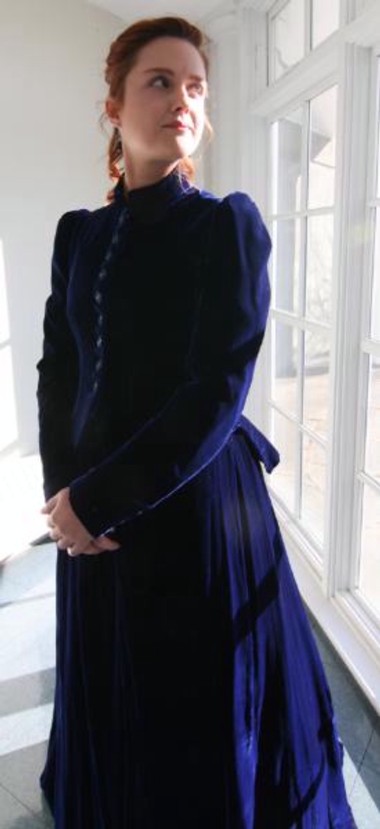As every good storyteller knows, “All happy families are alike; each unhappy family is unhappy in its own way.” That famous opening line from Anna Karenina could well be the chapter heading in a writing handbook, since drama, whether literary or theatrical, depends on proposing, complicating and resolving “unhappy” situations, for good or ill, and families are the archetypal crucibles for these conflicts. Inject a bit of sex, jealousy, revenge and the like, and you’ve got plot engines that have driven characters from Medea to Othello to Tony Soprano.
So it’s not much of a coincidence that two domestic tragedies revolving around adultery come to Valley stages this weekend. One of them is indeed an adaptation of Anna Karenina, Tolstoy’s epic novel about a young socialite whose boredom with her vapid existence and monotonous husband drives her into the arms of the dashing Count Vronsky. The other is Street Scene, a musical adaptation of Elmer Rice’s 1929 play about a working-class New Yorker whose unhappiness with her domineering and abusive husband drives her into the arms of the milkman.
Street Scene, at UMass this and next weekend, is what its composer, Kurt Weill, called an “American opera.” Having fled the Nazi juggernaut for New York, Weill infused his jazz-inflected music, developed in the Weimar-era “threepenny” operas he wrote with Bertolt Brecht, into a kaleidoscope style that embraced everything from operatic aria to Tin Pan Alley. And Street Scene has them all.
Weill admired Rice’s play for its big-city story of “love and passion and greed and death.” As lyricist, he and Rice enlisted Langston Hughes, poet laureate of the Harlem Renaissance, “to lift the everyday language of the people into a simple, unsophisticated poetry.”
This staging, directed by Gina Kaufmann, is a co-production of the UMass Theater Department and Five College Opera. Its expansive portrait of life in a teeming East Side tenement features a three-story set, a cast of 40—including guest pros from the opera world—and a 30-piece orchestra.
While Tolstoy painted Anna Karenina on an even bigger canvas, Anna K, at Amherst College this weekend, employs a cast of just nine and focuses on the two central, contrasting love stories of Anna and Vronsky, Levin and Kitty. Two onstage Readers portray peripheral characters and fill in plot gaps with narrative from Tolstoy’s text.
The play is the senior project of Amherst student Shawna Grajek, who performs the title role. She says that when she first read the novel, “I was absolutely enthralled by Anna. She passionately pursues and fights for love and life, rejecting a society where love is replaced with duty and respect.”
Last summer, with Amherst professor Peter Lobdell, who also directs the piece, Grajek adapted the sprawling 800-page novel into a taut, two-hour play. “Initially, the thought of performing such an iconic and beloved text terrified me,” she says. “Yet working with a story and character that I passionately care about felt intuitively right. The undertaking has been a delicate balance between staying true to Tolstoy’s story while adapting the text to make it relevant to a new medium—the stage.”•
Street Scene: Feb. 21-March 1, Rand Theater, UMass-Amherst, (413) 545-2511, umass.edu/theater.
Anna K: Feb. 20-22, 8 p.m., Kirby Theater, Amherst College. Free, no reservations required.
Chris Rohmann is at StageStruck@crocker.com and his StageStruck blog is at valleyadvocate.com/blogs/stagestruck.



